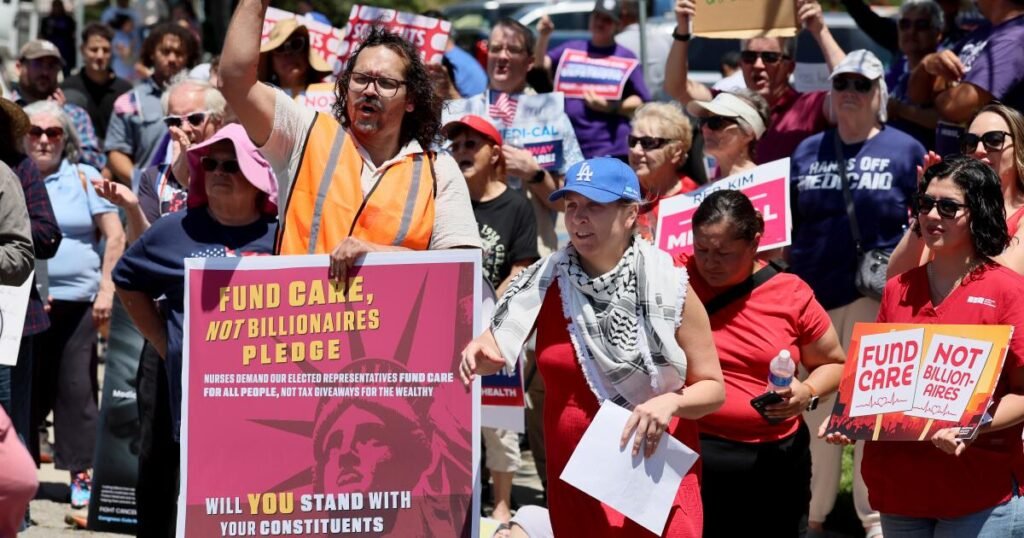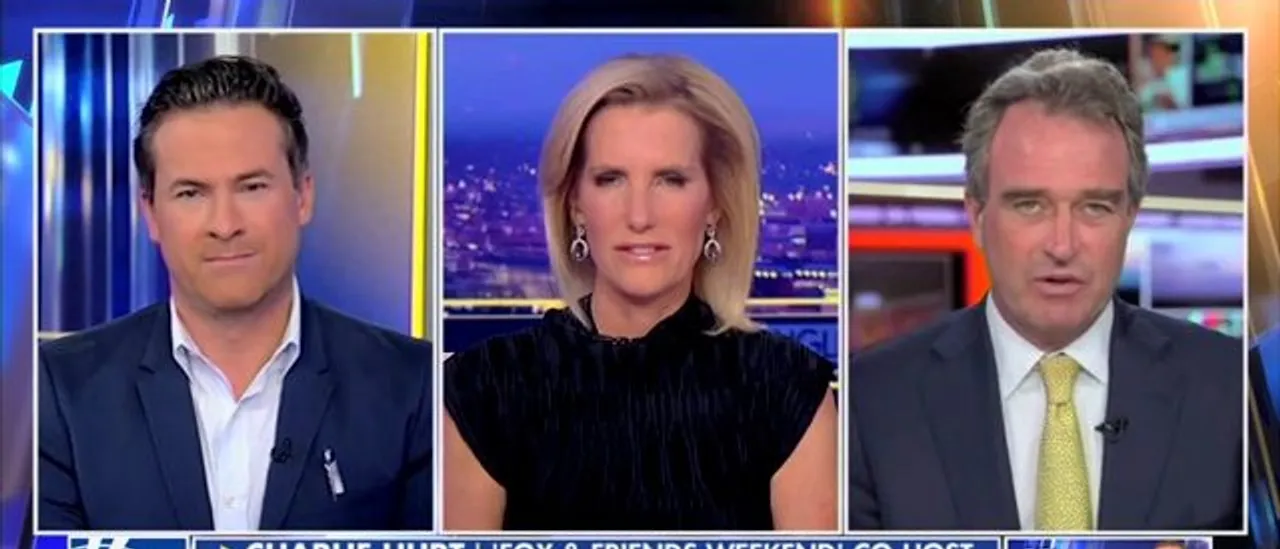Protests Erupt Over Trump’s Federal Funding Cuts
On Tuesday, protesters set up a base outside the offices of Orange County Councillors, expressing their opposition to President Trump’s proposal to slash federal spending by over $1 trillion. This plan aims to cover medical expenses for those in need while extending tax cuts to millions of Americans.
Dubbed the “One Big Beautiful Bill Act,” Trump’s proposal passed narrowly in the US Senate, just as a large crowd gathered to voice their concerns. However, it’s worth noting that the bill still needs a vote from the US House of Representatives, which could happen over the weekend.
“I don’t see anything beautiful about it,” said Mendenhall, a nurse from UCLA involved in the protests. “It’s harmful and reckless. We need Medicaid—these cuts are unbearable.” As protests escalated, security personnel barred access to Rep. Young Kim’s office while Anaheim police monitored the situation.
Some staffers appeared to witness the demonstration from outside before retreating indoors as protesters shouted chants of “Shame! Shame!”
In a statement, Kim reassured her constituents that she is open to discussions. “I know how vital Medicaid services are to many people,” she said. “I’ve been meeting with local medical advocates to understand their needs better.” She claimed she voted to protect and improve Medicaid services for the community’s most vulnerable members.
Trump’s proposal significantly alters tax laws, offering permanent tax cuts that mainly benefit large corporations and wealthy individuals while risking essential funding for federal safety net programs like Medicaid and food assistance.
In California, over a third of residents—around 15 million—are enrolled in Medi-Cal, the state’s Medicaid program. This includes a significant number of rural residents who previously supported Trump. More than half of children in California rely on Medi-Cal for health coverage.
A previous version of the Republican bill had already gained approval from the House with Kim’s backing. The Senate green-lighted an amended version, albeit narrowly. With three GOP Senators missing, Vice President J.D. Vance had to cast a tie-breaking vote.
The House and Senate are now working to reconcile the two versions of the bill. This week is typically reserved for district work, yet House Speaker Mike Johnson ordered members back to D.C. for a potential vote on Wednesday or Thursday.
The goal is to have the law on Trump’s desk by July 4. However, concerns linger among Republicans regarding their ability to gather sufficient votes, especially considering opposition from Democrats.
A recent analysis by the Congressional Budget Office projected that the Senate version of the proposal could increase the national deficit by approximately $3.3 trillion between 2025 and 2034, with an estimated 11.8 million Americans losing their health insurance in the next decade.
Trump took to social media to commend the bill’s progress, urging House Republicans to back it. The proposal has sparked internal conflict within the GOP, with some expressing worries about its impact on the national deficit and various programs.
“I’ve made it clear from the start that I won’t support a bill that would harm Medicaid or put essential funding at risk,” wrote Republican David Valadao on social media, voicing concerns for the more than 500,000 residents in his district relying on Medicaid. His spokesperson did not provide updates on how lawmakers were leaning regarding the upcoming vote.
While Kim’s Orange County district is comparatively wealthier, some of her constituents also depend on Medicaid services.
During the protest, demonstrators articulated how the proposed cuts would adversely affect vulnerable groups in California, including children with disabilities, veterans, and individuals losing access to reproductive health care.
“We’re in a critical moment where rights are under siege,” noted Emily Escobar, a public advocacy manager at Planned Parenthood in the region. She highlighted that while federal funds wouldn’t cover abortions, they are crucial for services like cancer screenings and preventive care. Cuts, she warned, would lead to clinic closures and limited access to necessary services.
A local resident underscored the stakes, describing the financial struggles she and her husband face amid high medical expenses. “Medi-Cal saved us. Without it, we’re lost,” she said.
Another protester, Michelle Del Rosario, shared her worries about her son’s medical needs and the impact of potential cuts. “He needs this coverage to manage his condition,” she explained. “He dreams of living independently, but he needs support to get there.”







